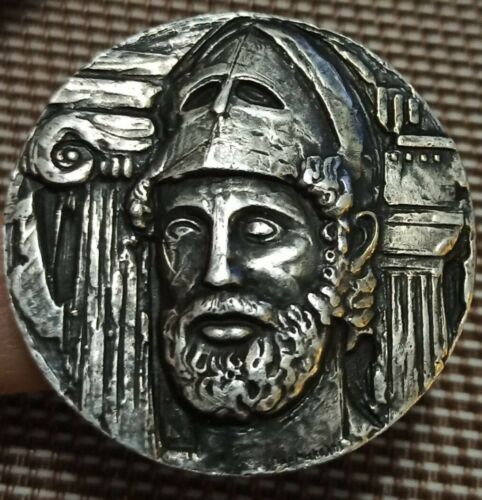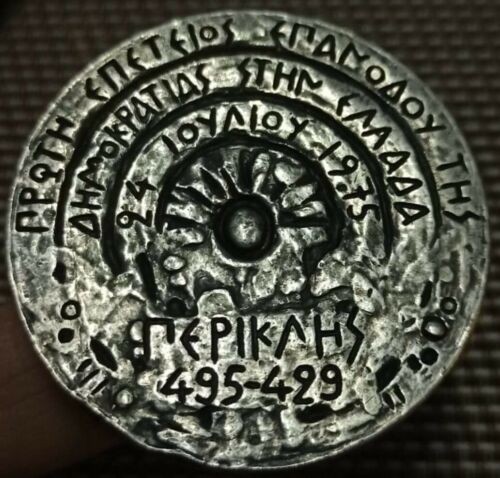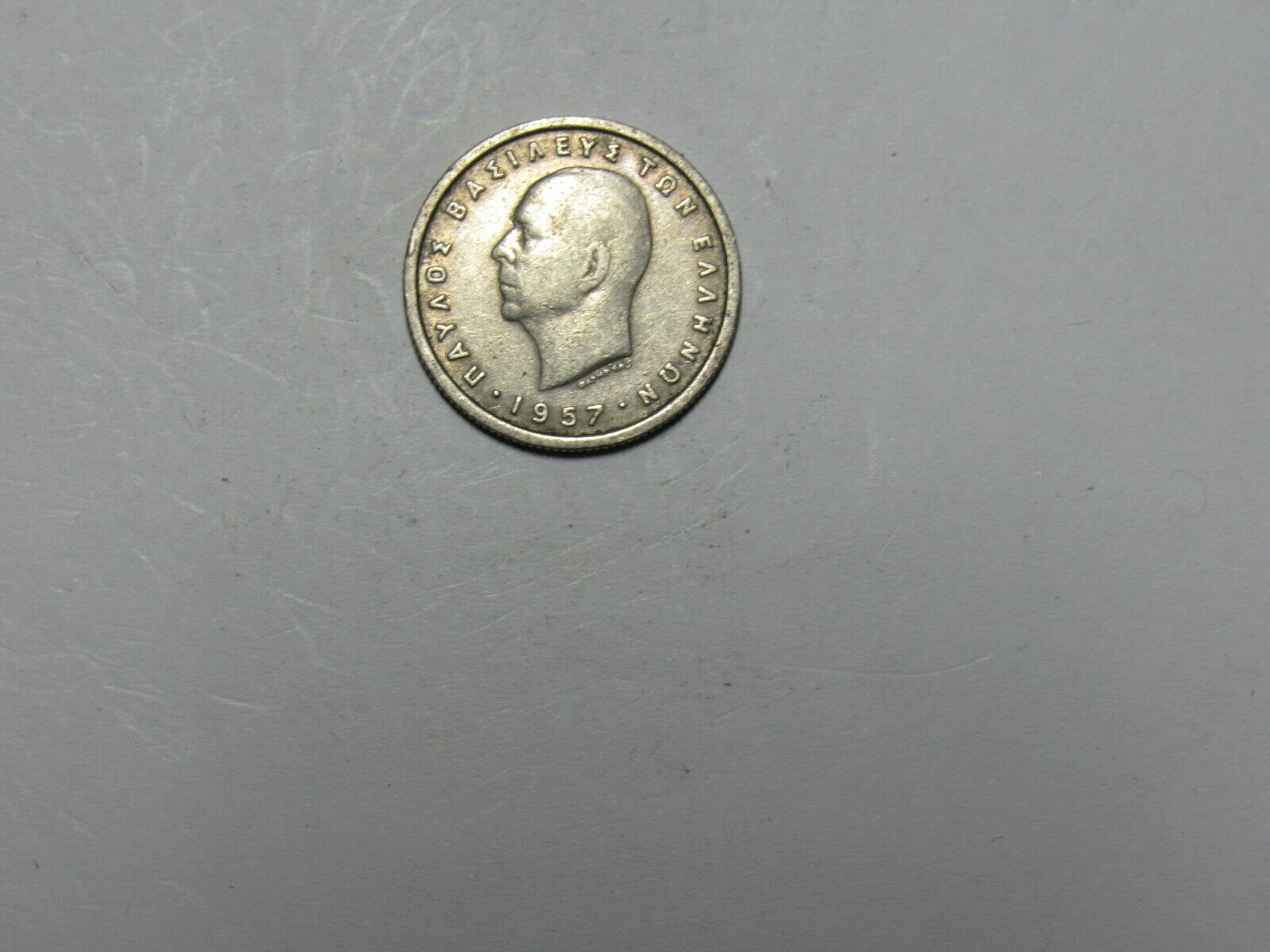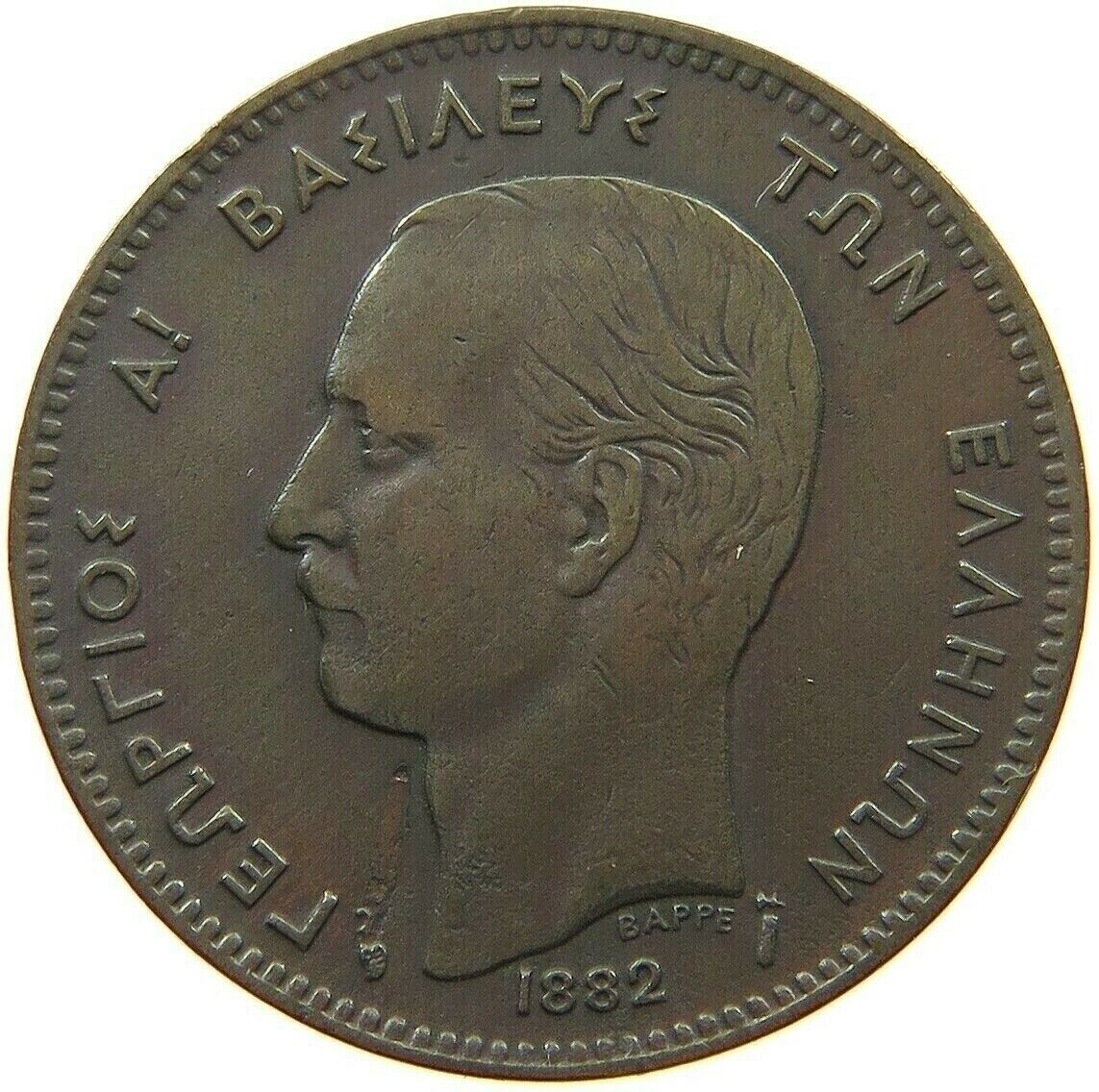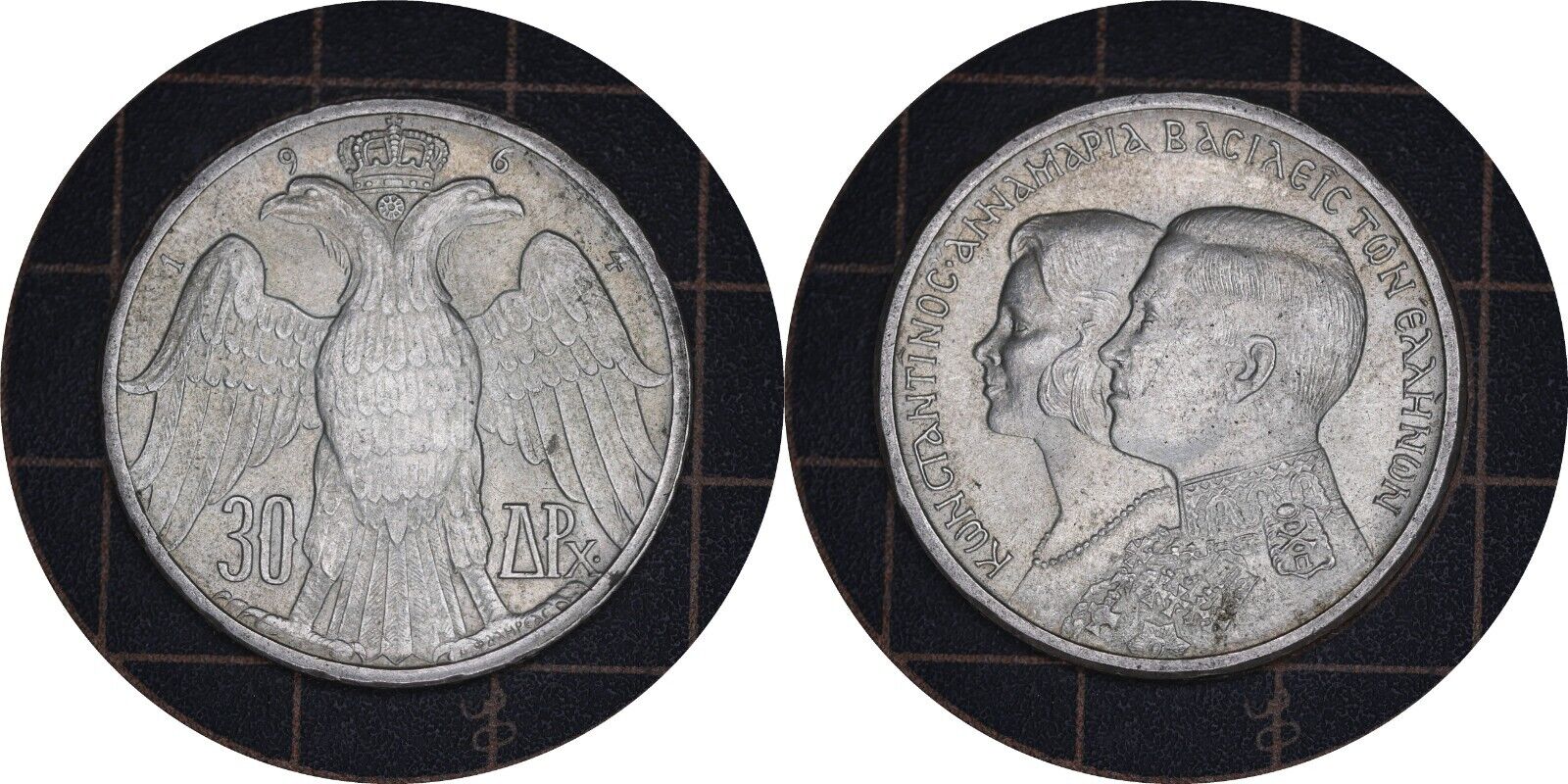-40%
RARE Silver 46g 🅰️ Ancient Greece PERICLES 🅰️ GRECIA GRECE Griechenland
$ 76.55
- Description
- Size Guide
Description
PericlesBust of Pericles
bearing the inscription "Pericles, son of Xanthippus, Athenian". Marble, Roman copy after a Greek original from c. 430 BC,
Museo Pio-Clementino
,
Vatican Museums
,
Born
c. 495 BC
Athens, Greece
Died
429 BC
Athens, Greece
Allegiance
Athens
Rank
Strategos
Battles/wars
Battle in
Sicyon
and
Acarnania
(454 BC)
Second Sacred War
(448 BC)
Expulsion of barbarians from
Gallipoli
(447 BC)
Samian War
(440 BC)
Siege of
Byzantium
(438 BC)
Peloponnesian War
(431–429 BC)
Timeline of Pericles' life (c. 495–429 BC)
Pericles
(
/
ˈ
p
ɛr
ɪ
k
l
iː
z
/
;
Attic Greek
:
Περικλῆς
Periklēs
,
pronounced
[pe.ri.klɛ̂ːs]
in
Classical Attic
; c. 495 – 429 BC) was a prominent and influential Greek statesman, orator and general of
Athens
during its
golden age
, specifically the time between the
Persian
and the
Peloponnesian
Wars. He was descended, through his mother, from the powerful and historically-influential
Alcmaeonid
family. Pericles had such a profound influence on Athenian society that he was acclaimed by
Thucydides
, a contemporary historian, as "the first citizen of Athens".
[1]
Pericles turned the
Delian League
into an Athenian empire and led his countrymen during the first two years of the Peloponnesian War. The period during which he led Athens, roughly from 461 to 429 BC, is sometimes known as the "
Age of Pericles
", but the period thus denoted can include times as early as the
Persian Wars
or as late as the next century.
Pericles promoted the arts and literature, and it is principally through his efforts that Athens acquired the reputation of being the educational and cultural center of the
ancient Greek
world. He started an ambitious project that generated most of the surviving structures on the
Acropolis
, including the
Parthenon
. This project beautified and protected the city, exhibited its glory and gave work to its people.
[2]
Pericles also fostered
Athenian democracy
to such an extent that critics call him a
populist
.
[3]
[4]
He, along with several members of his family, succumbed to the
Plague of Athens
in 429 BC, which weakened the city-state during a protracted conflict with
Sparta
.
ΓΙΑ ΕΛΛΑΔΑ ΓΙΝΕΤΑΙ ΚΑΙ ΑΝΤΙΚΑΒΟΛΗ Η ΚΑΤΑΘΕΣΗ/ΜΕΤΑΦΟΡΑ ΣΕ ΤΡΑΠΕΖΑ.
Επικοινωνήστε για λεπτομέρειες.
The item on the pictures is the one that you will receive. Look carrefully and judge for your self for the quallity and the grade.
S&h is .90 for all the world.
Registered mail with international tracking number.
For heavy coins or with box+coa, postage can be conbined for each.
BID WITH CONFIDENCE. . SELLER with 100% POSITIVE FEEDBACK.
Pericles
Bust of Pericles
bearing the inscription "Pericles, son of Xanthippus, Athenian". Marble, Roman copy after a Greek original from c. 430 BC,
Museo Pio-Clementino
,
Vatican Museums
,
Born
c. 495 BC
Athens, Greece
Died
429 BC
Athens, Greece
Allegiance
Athens
Rank
Strategos
Battles/wars
Battle in
Sicyon
and
Acarnania
(454 BC)
Second Sacred War
(448 BC)
Expulsion of barbarians from
Gallipoli
(447 BC)
Samian War
(440 BC)
Siege of
Byzantium
(438 BC)
Peloponnesian War
(431–429 BC)
Timeline of Pericles' life (c. 495–429 BC)
Pericles
(
/
ˈ
p
ɛr
ɪ
k
l
iː
z
/
;
Attic Greek
:
Περικλῆς
Periklēs
,
pronounced
[pe.ri.klɛ̂ːs]
in
Classical Attic
; c. 495 – 429 BC) was a prominent and influential Greek statesman, orator and general of
Athens
during its
golden age
, specifically the time between the
Persian
and the
Peloponnesian
Wars. He was descended, through his mother, from the powerful and historically-influential
Alcmaeonid
family. Pericles had such a profound influence on Athenian society that he was acclaimed by
Thucydides
, a contemporary historian, as "the first citizen of Athens".
[1]
Pericles turned the
Delian League
into an Athenian empire and led his countrymen during the first two years of the Peloponnesian War. The period during which he led Athens, roughly from 461 to 429 BC, is sometimes known as the "
Age of Pericles
", but the period thus denoted can include times as early as the
Persian Wars
or as late as the next century.
Pericles promoted the arts and literature, and it is principally through his efforts that Athens acquired the reputation of being the educational and cultural center of the
ancient Greek
world. He started an ambitious project that generated most of the surviving structures on the
Acropolis
, including the
Parthenon
. This project beautified and protected the city, exhibited its glory and gave work to its people.
[2]
Pericles also fostered
Athenian democracy
to such an extent that critics call him a
populist
.
[3]
[4]
He, along with several members of his family, succumbed to the
Plague of Athens
in 429 BC, which weakened the city-state during a protracted conflict with
Sparta
.
